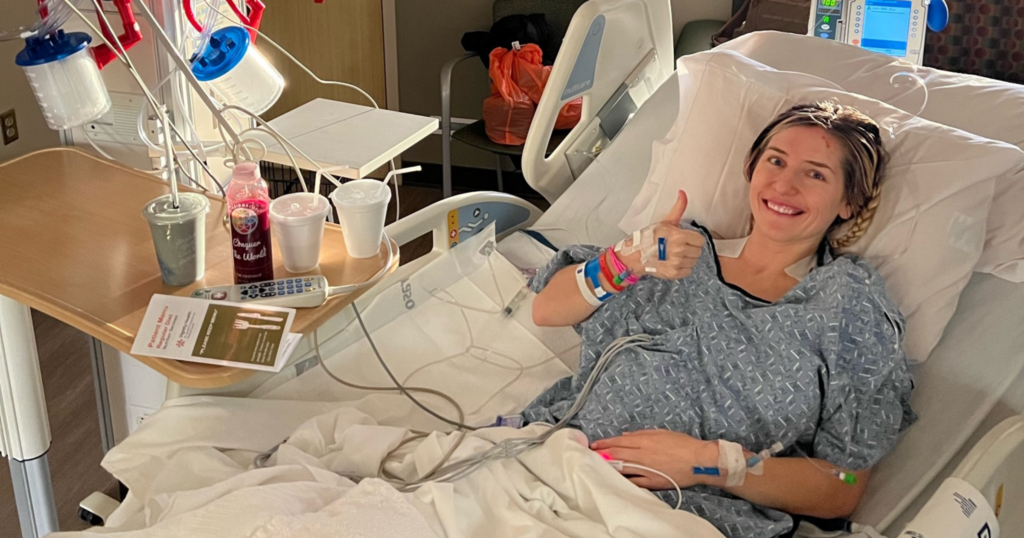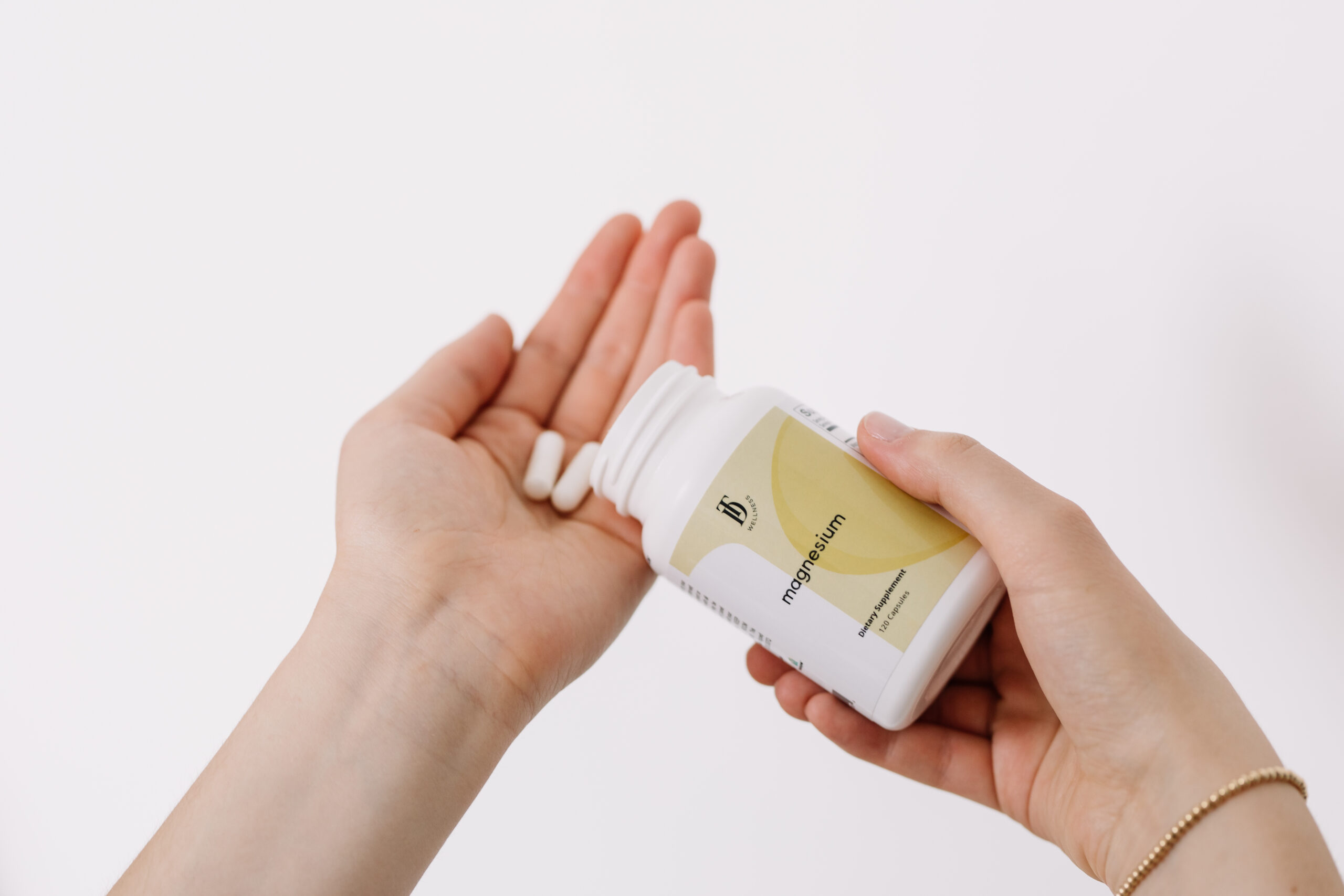Pre-Op and Post-Op Guide: How to Naturally Prepare for and Recover from Surgery

Please do not take this article as medical advice, you must work with your provider or surgeon directly on your pre and post op protocol, specific to you and your surgery, but I am sharing some things I personally have done.
After going through two major surgeries recently, I’ve received so many questions about what I do to prepare for and naturally recover from surgery naturally. This includes things like supplements, pain management, and lifestyle measures.
I’ve finally outlined it on paper! Below are my foundational supplements and lifestyle measures for pre-op and post-op. Keep in mind that the details will change – more or less – depending on the type of surgery you are undergoing. Note, that the following is a basic guideline to get you started in thinking about what you’d like to incorporate for your specific situation. It is not intended to be taken as personal medical advice, and as always, I encourage you to check with your provider/practitioner to tailor your specific protocol.
Supplements:
I did a 3-step approach to supplementation to prepare for and recover from surgery. Here is what I think is important personally:
- Start supporting your liver, gut, collagen repair and Vitamin D3/K2 supplements 30 days before surgery.
- Stop ALL supplements at least 7 days before surgery. Depending on the supplement, you may want to discontinue usage up to 2 or 3 weeks prior to surgery. Always discuss supplementation protocols and timelines with your provider.
- Re-initiate support for liver, gut, collagen repair and Vitamin D3/K2 supplements for 30 days post-surgery. Add homeopathy for symptom/pain management and magnesium citrate to encourage normal bowel function as needed.
Please learn more below regarding the specific supplements involved in supporting your liver, gut, collagen synthesis and beyond…
STOP Supplements
I want to start with a reminder that I suggest for my patients to stop all unnecessary supplementation at least 7 days before surgery. This will reduce the likelihood of any supplement interfering with the surgical process.
For example, you’ve likely heard that you should stop fish oil prior to surgery. This is wise due to concerns that omega 3 fatty acids may increase bleeding risk.
As always, talk with your physician about your supplement regimen and what may or may not be dropped.
Liver
Products: TDW Liver Support, TDW Glutathione, TDW Methyl Aid
The liver is the body’s detoxification powerhouse organ. You want the body’s detoxification processes running optimally leading up to and following surgery. With things like added emotional stress and anesthesia, the toxic load on the body around the time of surgery is typically heavier.
TDW Liver Support and TDW Glutathione pair perfectly to ease the workload of the liver and allow it to function more efficiently. With ingredients like dandelion root, milk thistle and turmeric, TDW Liver Support targets the liver to boost its function and support its first two phases of detox. TDW Glutathione delivers the body’s most potent antioxidant, which improves immunity, enhances liver tissue function, and decreases inflammation. TDW Methyl Aid then helps aid the detoxification process through the liver and aids whole well-being.
Gut
Products: TDW Gut Support, TDW Prebiotic and/or TDW Probiotic
The gut is the body’s first line of defense. It contains over 80% of the immune system, and most of our vitamins, minerals and other nutrients are absorbed through the gut. Gut health is essential for well-being.
During the time of surgery when the body is under increased stress, TDW Gut Support Support promotes a healthy inflammatory response while improving the gut lining by providing concentrated nutrition for gut cells. Most likely people are given antibiotics via IV in the OR or sometimes oral, depending on the procedure. Also, Prebiotic and/or Probiotic feed the “good bugs” in the gut, enhancing the strength and variety of the microbiome.
Collagen Repair
Products: TDW Complete C, TDW Protein Powder
Antioxidants help protect your cells from free radical damage, and they also help to support a healthy immune system. Vitamin C is an essential cofactor for collagen synthesis, which can be particularly important for wound healing. Keep in mind that zinc is also crucial for wound healing, so depending on your zinc status, it may be wise to complement your vitamin C with a zinc supplement (you can find favorite sources of zinc on my Fullscript).
I’m not sure protein technically qualifies as a supplement, but it’s too important not to list! Protein, and specifically amino acids are required for tissue regeneration, wound healing, hormonal health, and more. While you may not feel like pounding the animal protein right after surgery, a clean, organic bone broth protein powder is easy to blend into any sort of liquid in order to make sure you’re consuming optimal protein. I encourage clients to aim for a minimum of 100 grams of protein per day.
Vitamin D3/K2
Products: TDW Vitamin D3/K2
Low vitamin D status is associated with worse surgical outcomes in patients. Vitamin D is crucial for recovery as well as immune health. Some functional doctors will even require that you test your vitamin D levels before surgery, and if they are not optimal, then surgery must be delayed! The amount of Vitamin D you take, is dependent on your levels, and your provider can dose you more specifically. I personally like Vitamin D levels to be around 75-80 but taken in excess it can be toxic. I will say, from testing patients over the years, MOST Americans are deficient in vitamin D, despite sunlight exposure and food consumption.
Pain Management
Products: Genexa (actives), Arnica (homeopathy), TDW Inflammation Support (herbal)
While I’m not a fan of medications like Tylenol and Ibuprofen long-term, which can be hard on the gut/liver, there’s a time and a place for everything. And I would much prefer to control pain with these two options, rather than prescription pain medications. Work with your provider to determine the best plan for you and if you are looking at over-the-counter anti-inflammatories, then look for clean options with these active meds such as from Genexa.
Otherwise, my pain management lineup includes homeopathy and supplements. I take Arnica from Boiron and TDW Inflammation Support for pain needs.
Magnesium Citrate
Products: Magnesium Citrate on Fullscript
I love magnesium citrate (which you can find on my Fullscript) as a more natural option than your typical laxative or stool softener to keep things moving after surgery. Take this in the evening before bed, and it will help you have a bowel movement in the morning to stay regular. Usually, 200-400mg will do the trick.
Lifestyle Measures:
Rest
While I think rest is ideal leading up to surgery, it’s imperative for recovery afterward.
Optimal rest is crucial for allowing the body to heal. This might mean canceling social commitments or meetings, and even taking time to disconnect completely. Limit visitors if that’s a consideration and feels stressful. Don’t be afraid to ask for help.
Optimal Hydration
Hydration is important to keep blood volume levels high and allow for good circulation of vitamins, nutrients and oxygen throughout the body. It also ensures good detoxification via the urine. Make sure you are well hydrated going into surgery, and that you continue to keep your hydration up post-op, too.
Pro tip, add some electrolytes to your water to hold onto the hydration you consume. My favorites are TDW Electrolytes and Quinton (found on Fullscript).
Stress Management
Whether it’s journaling, reading the Bible, deep breathing, talking with a loved one, taking a walk, or something else, finding ways to positively manage stress is key to healing. Positive stress management keeps cortisol levels low and allows the body to remain in the parasympathetic state to facilitate healing.
Leading up to surgery can be stressful and recovery from it also holds its own challenges – commit to making it a season where you invest in positive stress management measures.
High Protein Diet
I always suggest a higher protein diet following surgery. Protein is what allows tissues to rebuild and recover. This is necessary for not just scar healing, but healing of the deeper tissues as well.
As referenced above, protein powder is a super convenient/easy way to optimize protein intake without feeling like you need to eat a ton of meat right out of surgery. My clean protein can be mixed into yogurt or oatmeal or blended/whisked into smoothies, matcha, or just plain nut milk.
Scars Gel or Cream
I personally used and suggest Asea Renu 28 and Silagen for scar minimization.
Red Light
The LUMEBOX (use code DUKESWELLNESS) red light is also fabulous for scar healing! I used it to help heal my scar after brain surgery. Just two 10 minute sessions per day.
Affirmations
Your mental outlook impacts your physical healing. I found that having positive affirmations kept me focused and hopeful during the healing process, particularly after brain surgery. These can be memorized or simply read out loud to oneself multiple times a day. Use these leading up to and/or following surgery.

Grounding and/or Grounding Mat
Y’all, this is so simple and so powerful. I love grounding as a post-op daily ritual. Grounding, or earthing, is well-researched and proven to have significant positive effects on inflammation, the immune response, wound healing, and more.
If you don’t have access to the outdoor ground (such as during winter seasons or when weather is a consideration), you may look into a grounding mat such as a PEMF Mat (use code TAYLOR15). The PEMF mat was a game-changer in my nervous system recovery after brain surgery. Also, I LOVED Epsom salt baths after brain surgery. They were calming, peaceful and grounding.
Lymphatic Health
Circulation and movement are critical for healing. This is what allows oxygen and nutrients to be delivered throughout the body, but also what allows for lymphatic flow and proper detoxification.
Work on your lymphatic health leading up to surgery so that pathways become unclogged and remain open. Focus on lymphatic health following surgery to detoxify and expedite healing.
Some of my favorite ways to promote lymphatic health include daily movement/exercise, rebounding, dry brushing (my favorite dry brush – use code TAYLORDUKES), sweating, and lymphatic massage. Of course, make sure you are cleared by your practitioner to do things like gentle movement, sweat, etc.
Detox Baths
Detox baths are helpful for detoxing from any scans, anesthesia, meds, etc. that you may do or take leading up to and/or following surgery. You can learn all about detox baths, including recipes, in my article Detox Baths 101. And for more information on specifically using detox baths to detox from CT Scans, X-ray, MRIs or other heavy metal/radiation exposure, you’ll want to read my protocol in this article – Tools to Naturally Detox from Medical Imaging Tests & Scans.
HBOT
Hyperbaric oxygen therapy (HBOT) was a therapy I used to expedite healing after both of my surgeries. It delivers high concentrations of oxygen throughout the body. Oxygen is necessary to fight infections and pathogens, facilitate healing, decrease inflammation, and so much more. If you want to learn more about the power of HBOT, check out this article – The Benefits of Hyperbaric Oxygen Therapy.
It goes without saying that leading up to and following surgery is a good time to focus on the foundational pillars of your health – sleeping well, eating real/whole/clean food, daily movement and exercise. I found that finding moments of joy and community was healing and helpful both pre- and post-op. It’s so easy to worry, but focusing on really being present in the moment is good for both the body and mind.
Finally, if you or a loved one are preparing for surgery, I’m cheering you on! I understand the stresses, but I also know that healing and good things can follow. Stay hopeful, friends!
Helpful Resources: On a Personal Packing Note
Want to know what I pack in my hospital travel bag? You don’t have to wonder anymore! Here are a few faves:
- Snacks! Paleovalley (use code TAYLORDUKES) and Skout Organic bars (use code TAYLORDUKES)
- Eye mask (I love CLEARSTEM – use code TAYLORDUKES)
- Pajamas – Amazon has some good options, but Petite Plume pajamas truly have my heart
- Robe – this Barefoot Dreams robe is the coziest! Also Brooklinen organic ribbed robe is a fave.
- Dry shampoo – Primally Pure has the best non-toxic dry shampoo! (use code TAYLORDUKES)
- Hand sanitizer from Primally Pure (use code TAYLORDUKES)
Stay Updated on All Things Wellness
At Taylor Dukes Wellness, we are always working on new ways to serve you on your health journey. Be the first to learn about new healthy living resources, blog posts, and TDW offerings, by getting on my insider list here.
And get deeper support through my TDW Community. When you become a member, you get access to functional medicine expertise from me and my team, a digital library of exclusive wellness content like deep dives, live monthly Q&As with me and more.
Share This Post:
Your Wellness Deep Dive
- Be the first to learn about new healthy living resources, blog posts, and exclusive TDW offerings by getting on my insider list.
- Find healthy living products with ingredients you can trust – the same ones I personally use for myself and my family – in the TDW Shop. Check out our protein powders, electrolytes, supplements, and more!
- Get personalized support through the TDW Community. When you become a member, you get access to functional medicine expertise from me and my team, functional medicine lab testing and 1:1 consults, a digital library of exclusive wellness content, live monthly Q&As with me, and so much more!
YOU MAY ALSO LIKE:
Helping you get your gut right, improve energy, boost immunity, balance hormones, sleep better and look + feel your best
DISCLAIMER
PRIVACY POLICY
TERMS + CONDITIONS
ACCESSIBILITY
© 2025 Taylor Dukes Wellness
LEARN
SHOP
ABOUT
TDW Community
Free Guides
Blog
TDW Store
Fullscript
About Taylor
Press
Contact
COOKIE POLICY
SITE CREDIT
Trusted Products



